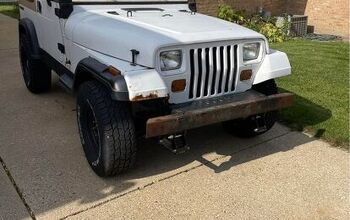Breaking: The Chevy Sedan Is Not Yet Extinct (Though Buyers Are Working On It)

Unlike Ford, which plans to put its sole remaining four-door passenger car underground by 2021, General Motors’ Chevrolet division is not quite ready to kiss the sedan goodbye.
While the automaker did cull its compact Chevrolet Cruze earlier this year (sparking a wail of grief from a certain writer whose year-old daily driver now bears an defunct nameplate), and while the Chevy Impala is also scheduled to bite the dust come January, the long-running Malibu is said to have at least a few good years left in it.
According to Automotive News‘ updated product pipeline, the midsize Malibu, which underwent a facelift for 2019, “is expected to continue until at least 2024.” The same longevity cannot be claimed by the subcompact Sonic and Spark, which appear ready to follow their larger siblings into the grave within a year or two.
Come that hazy tombstone date, the Malibu might be “indirectly” replaced by an electric vehicle, the AN prophets claim. A refresh could occur for 2022, should GM deem it practical.
Built in Kansas City, the Malibu underwent significant changes for 2016, enjoying large gains in fuel economy and a significant loss of weight. At the same time, the sedan’s much-maligned backseat gained some much-needed volume. Sales volume followed, with that year being the model’s best showing since GM returned the Malibu nameplate to the Chevy stable in 1997.
Alas, good things rarely last, and GM watched Malibu sales fall from nearly 228,000 in ’16 to just under 186,000 in 2017. Last year brought another tumble, to the 144,000 bracket — its worst sales year since 2007.
If you’re wondering whether there’s good news for this sensible sedan in 2019, you can probably guess the answer. There isn’t. Through June, Malibu sales fell 14.7 percent, mirroring the performance of so many midsizers — and cars in general — throughout the industry. If the trend continues, and there’s ample reason to believe it will, one wonders if 2024 is too rosy a prediction for the Malibu’s end date.
At least its Fairfax Assembly home, unlike the Cruze’s now-shuttered Lordstown facility, hosts a crossover under its roof.
[Images: General Motors]

More by Steph Willems
Latest Car Reviews
Read moreLatest Product Reviews
Read moreRecent Comments
- Doc423 It's a flat turn, not banked, which makes it more difficult to negotiate, especially if you're travelling a little too fast.
- Jeff “So, the majority of our products are either ICE vehicles or intended to utilize those multi-energy platforms that we have. This is a great opportunity for us, compared to our peers, having the multi-energy platforms for all of our products in development and having the agility to move between them,” she said. From what is stated about the next generation Charger it will be released as a 2 door EV and then as a 4 door with the Hurricane turbo straight 6. I assume both the 2 door and 4 door is on the same platform.
- Brendan Duddy soon we'll see lawyers advertising big payout$ after getting injured by a 'rogue' vehicle
- Zerofoo @VoGhost - The earth is in a 12,000 year long warming cycle. Before that most of North America was covered by a glacier 2 miles thick in some places. Where did that glacier go? Industrial CO2 emissions didn't cause the melt. Climate change frauds have done a masterful job correlating .04% of our atmosphere with a 12,000 year warming trend and then blaming human industrial activity for something that long predates those human activities. Human caused climate change is a lie.
- Probert They already have hybrids, but these won't ever be them as they are built on the modular E-GMP skateboard.



































Comments
Join the conversation
Corn-based ethanol scam? Correct! Sugar cane ethanol is WAY better. Sugar cane derived ethanol, as is produced in South America, can be produced for approx 5% of the cost of corn-derived ethanol (production costs, not logistics of shipping it). The corn-derived ethanol thing is a MASSIVE SCAM ON TAXPAYERS/CONSUMERS and MASSIVE WELFARE TO BIG AGRICULTURE. Sugar cane grows like crazy, even win the wild, with almost no required extra fertilizer, water or other commoditized input. Corn is a fertilizer and especially water intensive crop (corn requires about 100x the amount of water that sugar cane does to grow). CONGRATULATIONS AMERICAN TAXPAYERS/CONSUMERS. You literally could have ethanol at the pump for approx 1/5th the cost of what it is now BUT FOR CONgress and "both" "different" political parties bending you over, repeatedly, par for the course in every facet of your life.
Agree corn based ethanol is a scam and we are all paying for it as taxpayers and the damage it does to our vehicles and power equipment. It would be interesting to know just how much dollarwise the damage that corn based ethanol does to vehicles and power equipment--I would guess it would be at least millions per year.